Just In
- 3 hrs ago

- 7 hrs ago

- 7 hrs ago

- 13 hrs ago

Don't Miss
- Technology
 Nothing Phone 2 Receives NothingOS 2.5.5 Update with ChatGPT Integration and More
Nothing Phone 2 Receives NothingOS 2.5.5 Update with ChatGPT Integration and More - Movies
 Maidaan Box Office Day 9 Prediction: Ajay Devgn’s Football Saga Inch Towards 30Cr Ahead Of 2nd Weekend
Maidaan Box Office Day 9 Prediction: Ajay Devgn’s Football Saga Inch Towards 30Cr Ahead Of 2nd Weekend - Finance
 Trade Setup: Nifty Slides Below 22,000 Mark; Global Markets Plunge On Reports Of Explosions In Iran
Trade Setup: Nifty Slides Below 22,000 Mark; Global Markets Plunge On Reports Of Explosions In Iran - Sports
 LSG vs CSK IPL 2024: Ekana Stadium Pitch Report, Lucknow Weather Forecast & Live Streaming Info
LSG vs CSK IPL 2024: Ekana Stadium Pitch Report, Lucknow Weather Forecast & Live Streaming Info - News
 Lok Sabha Elections 2024: Mohan Bhagwant, P. Chidambaram And Edappadi K Palaniswami Starts The Day By Voting
Lok Sabha Elections 2024: Mohan Bhagwant, P. Chidambaram And Edappadi K Palaniswami Starts The Day By Voting - Automobiles
 Aprilia RS 457 Accessories: A Detailed Look At The Prices
Aprilia RS 457 Accessories: A Detailed Look At The Prices - Education
 Karnataka SSLC Result 2024 Soon, Know How to Check Through Website, SMS and Digilocker
Karnataka SSLC Result 2024 Soon, Know How to Check Through Website, SMS and Digilocker - Travel
Telangana's Waterfall: A Serene Escape Into Nature's Marvels
International Women’s Day 2021: 21 Burning Questions On Women’s Health Just Answered!
While it may sound clichéd when we say men are from Mars and women from Venus, the truth remains that women and men are quite different from each other biologically.
So to celebrate the International Women's Day in style, here are 21 common health questions that most women ask themselves sometime or another during their life.
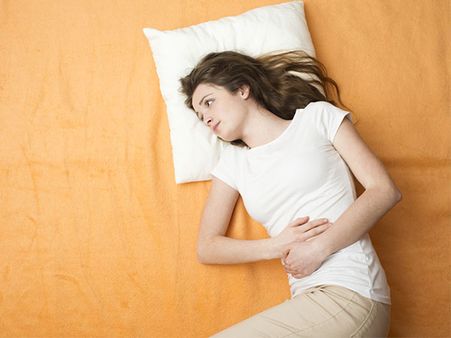
Your Period: A Monstrous Inconvenience...Until It Isn’t
You cannot tell a girl and boy apart if you raise them the same way. That is, until they hit puberty. That's when everything goes downhill for our lot.
From coping with the horror of growing a pair of milk sacs to combating the embarrassment of leaving behind blood stains on telling surfaces, a girl has to go through quite a lot during puberty. And unlike boys, this inconvenience does not end for us at puberty.
So, here are the 9 commonest questions every woman has about her period and everything that leads up to it and beyond.

Q. I bleed heavily during my period. Should I be concerned?
That depends.
While it's perfectly normal for some women to have heavier blood flow during their period compared to their peers, if you suddenly observe an increase in your period flow, then you should definitely get it checked out by a gynaecologist. This is usually caused by uterine fibroids (a.k.a benign uterine tumors), and will cease after a simple uterine myomectomy.
On the other hand, if your period flow is just too much on a regular basis and causing you endless inconveniences, we recommend you speak to your doctor regarding the same, as they usually can help you by prescribing pills that control the bleeding.

Q. Is there a way to tell when I am ovulating?
There are two ways through which you can roughly guess your time of ovulation.
One, if you have regular menses, count back 10 to 16 days. That's a rough estimate of your usual ovulation period.
Two, your vaginal discharge becomes thinner and clearer during ovulation as your cervical mucus thins out during this time.
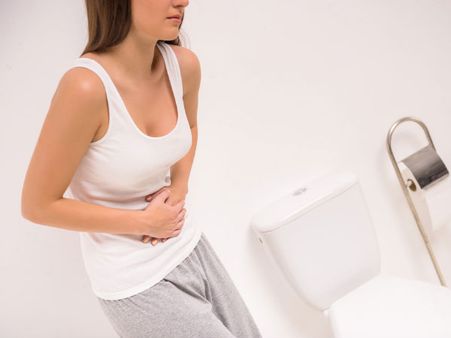
Q. Why is my poop so loose during my period?
Your poop can get more liquid-y than normal during your period, as your body releases prostaglandins (stress hormones) during this time, which is known to affect your bowel movements adversely for the first few days.
The problem resolves own its own, so there is no need to worry.

Q. I don’t feel pain during my period. Is that normal?
Yes! You lucky girl! It absolutely is.
The reason why periods usually are painful is because your body releases a host of hormones during this time that induces uterine contractions similar to what a woman goes through during labor (although not as intense). These contractions basically cut off blood supply to your uterine lining, so it sheds off in the absence of a fertilized egg.
So, if you do not feel pain, it's most likely because your pain threshold is high or you aren't cramping hard.

Q. Can a tampon get lost inside me?
No. It can't.
While a tampon can sometimes go deep into your vagina, it's too large to actually cross the cervical barrier. Plus, tampons always have a string attached to one end. So if your tampon has accidentally gone too deep, just fish for the string and pull it out.
Remember: Tampons should not stay in your vagina for more than 8 hours, as that can lead to infections. So if you are unable to pull out your tampon, we recommend you head to the nearest gynaecologist's clinic and get them to extract it.
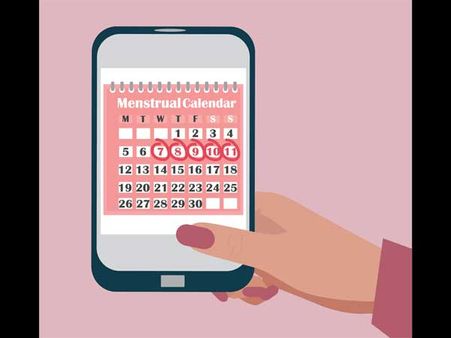
Q. My periods last for just a day or two. Is that normal?
While some women are blessed with shorter menstrual cycles compared to their peers, if the average duration of your menses suddenly changes to just a day or two for a few months, then you should definitely get yourself checked out.
This can be a sign of PCOS, uterine fibroids, or polyps.

Q. What does it mean if I get my period twice in a month?
If it happens just once, don't worry. Sometimes, the hormones in your body can go into overdrive. But if this problem persists for months, then it's definitely a cause for concern, as irregular menses are usually a sign of deep-seated problems, like PCOS, fibroids, thyroid, or even stress.
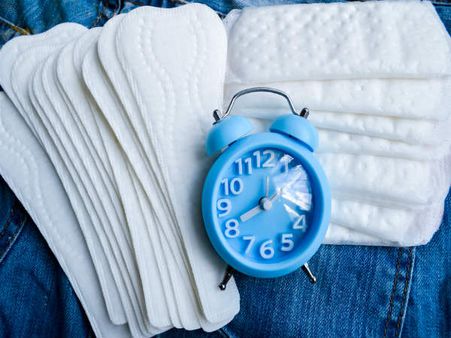
Q. When will I get my first period after pregnancy?
That depends on whether you are feeding your child only breast milk or combining it with bottled milk.
If it's the former, you will most probably not get your period until you start to wean your child off of breast milk. This is your body's way of preventing you from being fertile again.
But if it's the former, you can expect to get your first period within the 4 to 6 weeks.
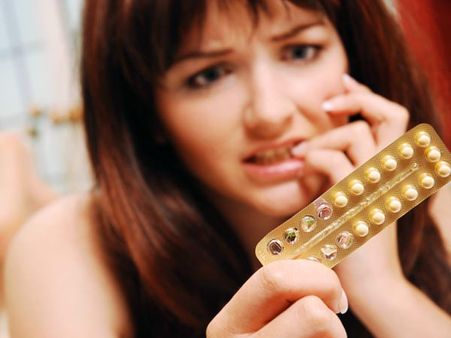
Q. I have an important occasion coming up. Can I delay my period in some way?
Yes, you can. But you will need to consult your gynaecologist for the same. And that too at least a month in advance.
The only way you can delay your period is by taking combined contraceptive pills. And the course for this is something best judged by a trained medic.

Nether Regions: Popping The Cherry and Everything In Between
There was a time when a roll in the sack before marriage was considered blasphemous for women. After all, who would choose to marry a girl who was not a virgin!
Not anymore.
So if you are a firm believer of #GenderEquality and want to show it by being as sexually active as any man your age, then the following answers will soothe all those buzzing questions in your brain.

Q. I had sex for the first time, but did not bleed. Is it normal?
Yes! It is perfectly normal because in reality only around 50% women bleed during or after their first intercourse. And to understand why that happens, we need to talk more about the hymen.
Contrary to popular belief, the hymen is not just a membrane covering your vaginal opening. It is actually a band of doughnut-shaped muscle that guards your nether region. And while it is more thick and tough at birth, it gradually thins out as you age, until parts of it become almost membrane-thin.
This membranous part of the hymen is actually what breaks during intercourse and causes bleeding. But it can also tear apart if you are an active athlete, love horse-riding, or had a nasty fall sometime in your life. That's why, most women today do not have their hymens intact even though they are sexually virgins. After all, we don't sit around and do nothing like our predecessors hundreds of years back.
So, in reality, you never lose your hymen completely. It's a muscle after all that contracts and expands when you have sex. You just lose some parts of it.

Q. What should I do to tighten my vagina?
You vaginal walls are made of strong muscles. But with time and use, they tend to adapt to the invasive action and become loose. Therefore, like any other muscle in the body, the only way to strengthen them again is by training them regularly.
Kegel exercises are the best for this.

Q. My boyfriend says my labia are too long. Help!
The labia are folds of tissues on either side of your vaginal opening. And there are two pairs of them - the larger labia majora on the outside and the smaller labia minor on the inside.
It's perfectly normal to have long or unsymmetrical labia because like any other part of your body, say your ears or breasts, their shape is unique to you. Plus, small, symmetrical labia are a byproduct of the porn industry, and so, not natural.
So, if your labia are long, don't worry about them. As long as they do not cause you any pain or discomfort during sex or otherwise, you are fine.

Q. My vagina smells weird. Do I have an infection?
Define 'weird'.
If by weird you mean the stench is unbearable and fishy, then yes, you might have an STD or bacterial vaginosis. Please head to the nearest gynaecologist's chamber as soon as you can!
But if by weird you mean it doesn't smell like a bed of roses, then honey, you probably read too many erotic novels. Because in reality, the scent of vagina is musky and unique for every woman. You will get used to it in time.
Just don't use douches or soap to make it "smell" better. That changes the pH of your vagina and increases the risk of infection!
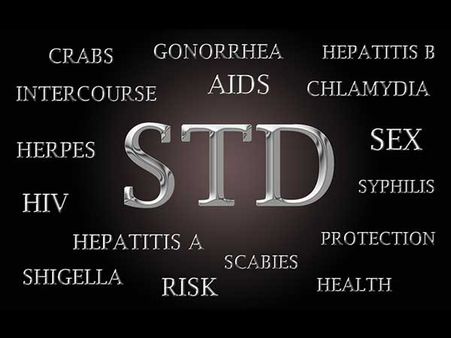
Q. I have a painful bump in my intimate area. Do I have an STD?
If you have a cluster of bumps that are painful to touch and are red, or have a hard bump with a red outline, then you might have an STD. Especially so if you noticed the same on your partner's genitals before sex. Please head to the doctor's immediately in that case.
If the description above does not match your condition, then most likely you have a cyst or an ingrown hair. These tend to subside on their own, provided you keep the area clean. If not, these can become pus-filled swellings quite fast.

Pregnancy Scares, Abortions, And Miscarriages
You know that feeling of dread that settles down deep in your gut when you miss your period date right after having your first sexual encounter. And the cold sweat that slides down your spine when the home-pregnancy test is positive for the third time.
Or maybe you have been trying to conceive a child for years and now that you are finally pregnant, you are afraid something will take away this precious child growing inside you.
Doesn't matter which side of the fence you are on - prolife or prochoice - pregnancy, abortions, and miscarriages always leave an invisible mark upon our soul. And the following questions are borne out of these very invisible scars and scares.
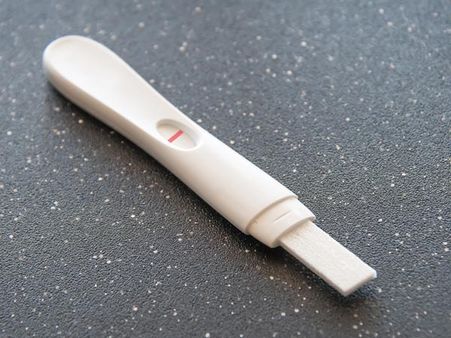
Q. I had sex for the first time and now I am not getting my period. Am I pregnant?!
The first sexual experience can be quite stressful for most people: you are unsure of what to do, uncomfortable being naked, and usually freaking out over perceived "unsexy" mistakes. This can often push your normal period date by a few days or more.
So if you had safe sex and the condom didn't break or get lost up in your birth canal, then the chances of you ending up pregnant are quite slim. But if you want to be absolutely sure, a home-based pregnancy test can easily clear up your doubts.
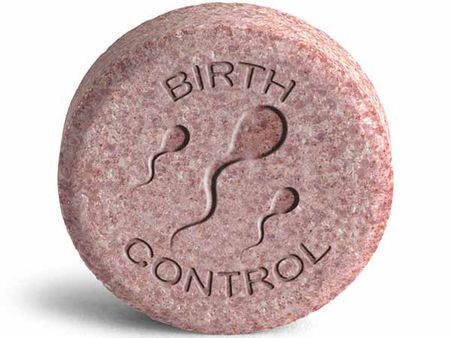
Q. I stopped taking birth control pills but we practice safe sex. Why am I not getting my period?
Birth control pills mess up your body's hormonal rhythm. So when you take yourself off them, your body takes a while to figure out it needs to start menstruating again. And while this mostly leads to missed periods for a month or two, sometimes this period-less phase can last for six months or more.
Just remember: condoms are not fool-proof. So if you missed your period and are not on birth control, please take a pregnancy test first and then consult with your gynaecologist.

Q. Will getting an abortion make me infertile in the future?
If the abortion is done at a professional clinic, the answer is no. But unclean, home-based abortion tactics are more dicey because they can often lead to uterine infections and pelvic inflammatory disease that destroys your fallopian tubes or ovaries.
We strongly recommend getting an abortion done by a gynaecologist.

Q. When can I start having sex after an abortion?
As soon as you are comfortable.
Women tend to bleed for a week or more after an abortion. So it's advisable to start only once you are comfortable having sex.
Just make sure to have safe sex, since you will most likely be fertile once again.

Q. How will I know if I have a miscarriage?
All miscarriages don't have the same symptoms. While some occur silently and are only picked up later during ultrasounds, others are more painful and exit with a lot of bleeding.
So if you are afraid of a miscarriage, please consult with your gynaecologist to allay your fears.

Q. How soon can I try to conceive again after a miscarriage?
Your body needs some time to heal before you can conceive again. So it's recommended to allow a gap of two periods before you try conceiving again.

Q. I have been unable to conceive a child since many months. Am I barren?
Conceiving a child requires two parents. So, if you are unable to conceive one, there is only 50% chance your womb is unable to grow a child. The other 50% of the time, it can be because your partner's sperms have low motility or his ejaculate has less than optimal sperm count.
So, don't beat yourself up if you have failed to get pregnant for quite a while now. Instead, consult with your gynaecologist and then get yourself and your partner checked out. Current medical science has many options available for you, even if the news is not great.
Sharing is Caring
Know a girlfriend who can benefit from reading some of the answers on this list? Share this article with her to show your love.
#GirlLove
-
 wellnessFemale Urinating Devices To Make Your Public Toilet Experience Less Scary
wellnessFemale Urinating Devices To Make Your Public Toilet Experience Less Scary -
 wellnessCervical Cancer Vaccine: All You Need To Know About India's Self-Developed HPV Vaccine
wellnessCervical Cancer Vaccine: All You Need To Know About India's Self-Developed HPV Vaccine -
 wellness11 Health Symptoms Women Shouldn't Ignore
wellness11 Health Symptoms Women Shouldn't Ignore -
 basicsExpert Article: Do You Have Endometriosis? Symptoms And Treatment
basicsExpert Article: Do You Have Endometriosis? Symptoms And Treatment -
 womenTennis Legend Chris Evert Reveals She Has Ovarian Cancer And Is Undergoing Treatment
womenTennis Legend Chris Evert Reveals She Has Ovarian Cancer And Is Undergoing Treatment -
 healthNew Potential Breast Cancer Drug Identified: Study
healthNew Potential Breast Cancer Drug Identified: Study -
 wellnessWomen’s Day 2021: Common Health Issues That Affect Women From Their 20s To 60s
wellnessWomen’s Day 2021: Common Health Issues That Affect Women From Their 20s To 60s -
 wellnessWomen’s Day 2021: Best And Healthy Foods For Women
wellnessWomen’s Day 2021: Best And Healthy Foods For Women -
 wellnessPoor Intimate Hygiene Linked To Being One Of The Biggest Causes Of Cervical Cancer
wellnessPoor Intimate Hygiene Linked To Being One Of The Biggest Causes Of Cervical Cancer -
 wellnessWomen's Health: 12 Important Health Tests Every Woman Should Take
wellnessWomen's Health: 12 Important Health Tests Every Woman Should Take -
 disorders cureVaricose Veins: Causes, Symptoms, Diagnosis And Treatment
disorders cureVaricose Veins: Causes, Symptoms, Diagnosis And Treatment -
 postnatal10 Reasons Why Alcohol Is Bad For Breastfeeding Mothers
postnatal10 Reasons Why Alcohol Is Bad For Breastfeeding Mothers


 Click it and Unblock the Notifications
Click it and Unblock the Notifications



